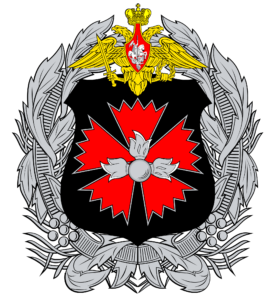
Main Intelligence Directorate (GRU)
Acronym Expansion: Glavnoye Razvedyvatel'noye Upravleniye
Creation Date: 1918/ 11/05
Location of Headquarters: Moscow, Russia
Person in Charge: (2023) Chief Igor Kostyukov
Operational Focus: Military intelligence, espionage, special operations, and cyber warfare.
Brief History: The GRU, established under its current name and form by Joseph Stalin on 1942 02 01, less than a year after the invasion of the Soviet Union by Nazi Germany, operated extensively during World War II. From 1943 04 01, the GRU exclusively handled human intelligence outside the USSR. It infiltrated British nuclear weapon programs and over 70 American government and scientific institutions.
Throughout the Cold War, akin to its Western counterparts, the GRU managed rezidenturas globally, comprising "legal" agents within Soviet embassies and "illegal" officers without cover. Despite the overshadowing presence of the KGB, the GRU engaged in significant episodes, including backchannel negotiations during the Cuban Missile Crisis and involvement in scandals that impacted the stability of Western governments.
During the Soviet era, the GRU's existence remained covert, only gaining public awareness during perestroika (restructuring) in the 1980s due in part to defector writings. Post the USSR's dissolution in 1991 12 01, the GRU persisted as a pivotal part of Russia's intelligence services while the KGB disbanded after a failed coup in 1991. Over time, the GRU faced reforms and financial constraints, yet sustained its strategic role.
The agency witnessed changes in leadership, including the unexpected demise of Igor Sergun on 2016 01 03 (born on 1957 03 28), prompting speculation of foul play. Subsequently, under Igor Korobov's leadership, the GRU encountered scrutiny over perceived setbacks in multiple high-profile operations. Korobov's passing on 2018 11 21 (born on 1956 08 03), amid rumors of reprimand from President Vladimir Putin, led to speculation. However, analyses suggested some missteps might have been intentional tactics in psychological warfare, reflecting the GRU's evolving strategies. Ultimately, President Putin proposed reinstating the GRU's former name during the agency's centennial commemoration on 2018 11 02.
Powers: The GRU specializes in military intelligence, conducting espionage, special operations, and cyber warfare to gather strategic information pertinent to national security and military planning. It operates both domestically and internationally, focusing on military-related intelligence gathering and covert operations.
Distinct from the SVR's foreign intelligence focus and the FSB's domestic security role, the GRU primarily concentrates on military-related intelligence and operations, providing crucial information to support Russia's defense and strategic decisions.
Notable Operations:
Operation Storm-333 (1979): A highly successful special operation conducted by Soviet special forces in Afghanistan. The GRU played a significant role in planning and executing this operation, aimed at securing the Presidential Palace in Kabul.
GRU Cyber Operations (ongoing): The GRU has been linked to various cyber operations, including interference in foreign elections and cyberattacks targeting critical infrastructure, displaying its proficiency in cyber warfare and information manipulation.
Operation Crimea (2014): The GRU was involved in the annexation of Crimea, executing intelligence operations to support the Russian military's actions during the annexation process in Ukraine.
The GRU's history is deeply tied to military operations and strategic intelligence gathering, cementing its vital role in Russia's defense and military planning.
